The inter-generational image here is of six women staffers at Newsweek: three young women (Jesse Ellison, Jessica Bennett, and Sarah Ball), and three older women who pioneered awareness of sex discrimination at the magazine by bringing a suit against it forty years ago. Their story, "Are We There Yet?," is told in what writer Nona Willis Aronowitz calls "a long, thoughtful, and brave article written by three young Newsweek reporters, calling out their own publication for a kind of lingering sexism that’s hard to pinpoint."
The historical piece has several supplements: a library of Newsweek images called "The Visual Language of Liberation," Jesse Ellison's personal essay "My Parents' Failed Experiment in Gender Neutrality," Jessica Bennett's article "Feminism or Bust," and a photo collection called "Have Women's Rights Paid Off?"
"What's wrong with this Feminist Picture?" though, Aronowtiz asks at her blog, GirlDrive. Her criticism is mindful of the risk of feminists calling each other out, yet it is pointed and specific about one thing: "In the 3500 words total that Newsweek devoted to the future of feminism this week, amid the 10 people who are quoted in these pieces, not one woman of color shows up."
In fact there is one woman of color there, identified as ACLU attorney Eleanor Holmes Norton. She appears in a photo of that 1970 press conference when the forty-six female Newsweek employees become the first group of media professionals to sue for employment discrimination based on gender, under Title VII of the Civil Rights Act. Where is she now? Norton is in her tenth term as congresswoman for the District of Columbia. (Her very impressive biography is here.) She wasn't contacted for the article, though.
Aronowitz, whose own writing is always what she calls "intersectional" regarding race, gender, sex, age, class, ethnicity, and religion, makes the astute observation that:
This happens constantly when the mainstream pubs try to cover feminism. It happened in a CNN news segment last June, where the network’s definition of feminism was Angelina Jolie, Hillary Clinton, and Gloria Steinem. It happened at a highly publicized Planned Parenthood event a few months ago called “Voices on Feminism,” which consisted of, yep, three white women.
She makes the point that there were plenty of diverse young feminists who could have been called for quotes in these stories:
Young feminists are trying not to make the same mistake that some Second Wave white feminists made of being blind to race issues. But places like Newsweek, CNN and other mainstream outlets make that a frustrating uphill struggle by painting a whitewashed, monolithic picture of feminism.There has been some interesting fallout around this call-out. Jezebel's Irin Carmon wrote a piece called "On Looking Back and Newsweek's Incomplete Picture" picking up on Aronowitz's critique:
There is a space for media criticism in all this, and for self-criticism, and for self-revelation. And yet to have your entire, extensive editorial package focus on your magazine and its past covers, and your childhood, and your issues with the F-word — well, it's all too easy for something like this to happen. If the actual staff of Newsweek doesn't include much in the way of diversity, isn't it time to utilize those reporting skills of which the traditional media is supposed to be the last guardians?Irin puts her faith in the Internet, if not in traditional media:
Luckily, the authors have launched an entire blog, Equality Myth, where they will have ample opportunity to present a fuller picture of what women beyond their ken are dealing with. Once again, the Internet saves us all.So what's over at Equality Myth tonight? A picture of a broken heart, and the news that the three writers feel slighted by Jezebel. In fact, they are breaking up with her – and they don't address Aronowitz at all. They want unalloyed admiration for their six months of effort on the Newsweek pieces,
in line with their earlier life experiences as high achieving valedictorians. They're hurt and under-appreciated – by women this time. "We thought that you, like Salon, and New York Magazine, and even the Women’s Media Center, would see our piece as a brave weapon in a struggle that’s not over."
I was surprised and disappointed to see this response: "Turning the story into a statement about race is simply, well, beside the point." It seemed so completely unreflective regarding what Aronowitz and Irin had to offer by way of constructive criticism. As Aronowitz put it: "It’s not racism – it’s colorblindness. It’s failing to realize the bigger picture of what feminism means today."
A big piece of the obscured picture of feminism today is right there in the story of that one women of color who wasn't contacted by Newsweek: the woman whose riveting gaze (calmly assessing the feminist spokesperson) jumps right out of the historical photo.
 Eleanor Holmes Norton is clearly one of the enduring heroes of the 1970 case, despite the fact that she was not a plaintiff. (She was the lawyer!~ giving this story a remarkable twist.) Photos at her website show her at the signing of the Lilly Ledbetter Act, welcoming same sex couples to a marriage equality event, and standing with her first Latino congressional council.
Eleanor Holmes Norton is clearly one of the enduring heroes of the 1970 case, despite the fact that she was not a plaintiff. (She was the lawyer!~ giving this story a remarkable twist.) Photos at her website show her at the signing of the Lilly Ledbetter Act, welcoming same sex couples to a marriage equality event, and standing with her first Latino congressional council.Tell me why Norton's voice in the Newsweek piece, her memories of the 1970 moment, and her reflections on intersections of race, class and sexuality around "the equality myth" would have been "beside the point."
















































































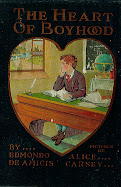





















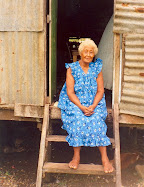




































.jpg)














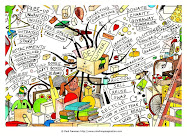












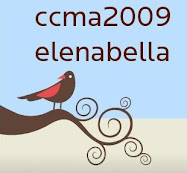





























































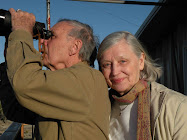















































.jpg)








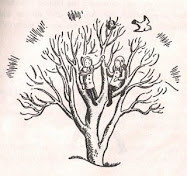







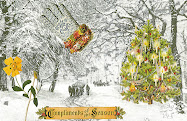



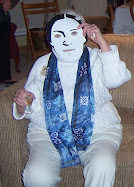





















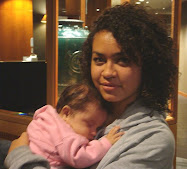






























































5 comments:
It amazes me that the wheel constantly needs to be reinvented.
Great post! Although, the plot has thickened over at Equality Myth, where they address my concerns and yours about Eleanor Holmes Norton: http://tumblr.com/xem7reau3
Since it seems to be impossible to comment (ladies, you should fix that!), I’m just going to post an email I just sent to them:
Hi J and J,
I do understand what you’re saying, and I know you’re operating under a mainstreamed sensibility. But that’s the whole point–you are the mainstream, and you (Newsweek, not you three individually) have the power to change the existing narrative. That’s what’s so frustrating–it just seems to operate in this vicious cycle. Why did you not quote women of color? Because the majority of the feminists in the spotlight are white. Why is this so? Because mainstream outlets pay attention to them. And so on.
Also–I didn’t mean that you needed to drop everything and start discussing how race affects feminism. I agree that it would have been, as Raina said, “gratuitous.” I just wanted to see women of color integrated into the fabric of the mainstream narrative—because they are part of what’s going on with young feminism right now, and they are experts on the topic, too. Jehmu Greene is the president of the Women’s Media Center. Melissa Harris-Lacewell is on MSNBC all the time. Just to name a couple. These are mainstream women, yet they get cut out of discussions like these.
Anyway, I’m glad the dialogue is open, and thank you for your thoughtful response. And I would love to be able to comment on your blog!
Thanks,
Nona
It's sad but as a black woman I am not surprised. You get used to being doubly invisible.
Hi Elenabella-
Thanks for leaving a comment on AuthenticOrganizations -- I'm returning the favor here b/c I agree with you that this issue is important to keep discussing.
We agree that the lack of diverstiy and the misrepresetation of feminism as a white girl thing was just bad on the part of the Newsweek journalists-- the 3 advocates and the entire magazine. You have to read Bitch, or Vogue, or O, to get any intersectional sexism conversation -- but at least they have it.
I'd love to see these journalists follow up with an interview of Norton-- more than so many women, she'd been at the forefront forever. I don't think that she is any more (or less) noble than the |"feminist spokesperson" who, in that photo, actually has her mouth closed. Looks to be like they are both responding to being lectured. And the white women is reasonably the focus of that photo- she is the plaintiff, after all.
I am also disappointed in the response from the women on EqualityMyth. I don't believe they were expecting unalloyed praise, but I also bet they weren't expecting to be overwhelmed with criticism. As the first commenter said-- we're doing this one again?
The reaction from commenters and bloggers, imho, has been harsh, angry, --strident even-- and negative. The content of the critique is important, and the delivery of it has been punitive.
That's not how we build alliances, people. If you put anyone who makes an inadequate effort on trial for screwing up, and decline to support them in other ways, you teach them not to bother.
We've been around and around on this issue for 60 years. Can't somebody step out of the predictable groove/rut and offer some constructive support along with that harsh dose of whatever?
Racism -- and more correctly, intersectionality -- is not beside the point. The journalists are wrong in that. however, it is not the only point. It is not the only lesson here. Why is is the only conversation? That's what I'd like to know.
cvh
Hi cvh,
Thanks so much for posting. I do think the articles represent something positive for Newsweek, and that's why I included Aronowitz's quote right at the beginning of her piece, calling it "long, brave, and thoughtful." I hope you don't see my post – or hers – as harsh, angry, or strident (oh, that word: so often affiliated with feminism!) as they were not written in that spirit.
I think both Nona and I were paying the utmost respect to this project: reading it carefully, broadcasting it widely, and taking the time to put constructive criticism into a response (a far cry from the hastily-written smug hostility that so often appears in comment sections, including the ones under the Newsweek pieces). Nevertheless, we didn't make the cut of "Our favorite reviews so far" over at Equality Myth.
http://equalitymyth.com/post/470987624/newsweek-sexism-our-favorite-reviews-so-far
where, for example, a simple supportive nod at the Ms. Blog is considered a "review."
I'm really trying to look at one element that is important and that, if overlooked, obscures the face of feminism, turning it into something less formidable and significant than it is. Class is that other topic that figures into this, of course. If we don't think about race or class we also don't think about all those other women implicitly excluded from this conversation. I don't want to see "feminism" reduced to being about making some kind of high salary list or recognizing a few token women in the top ranks of a system that continues blind to the complexity of concurrent issues. It's so much richer than that.
A sidebar from Elizabeth Holmes Norton, from her perspective, would have been fabulous: I'm dying to know the fuller story there. Jesse, Jessica and Sarah did let me know that they tried to contact her, but she was busy with a big project known as Health Care Reform...(Go, Eleanor!)
There's a CBS Morning Show video segment at Equality Myth with Newsweek Senior Writer Jessica Bennett and one of the original plaintiffs from the 70s, Lyn Povich (the woman next to Eleanor Holmes Norton in that archive photo). I'd like to know both of these people, and look forward to the book about the suit Povich says she is writing: that will be important, not least for reaching across generations. I wonder if she agrees with J,J,and S that the archival footage embedded in the segment is "hilarious" – that's not the word I would have used, simply because it diminishes and ridicules those efforts once again.
http://equalitymyth.com/post/470865045/our-jessica-bennett-and-newsweeks-first-ever
Anyway, it's all to-be-continued, not as a place to put down the efforts of these writers, but to enlarge upon them.
Post a Comment